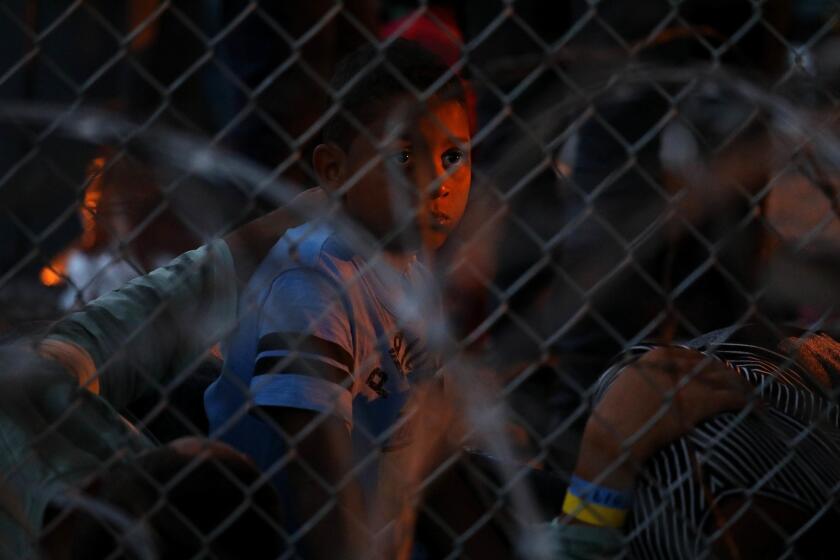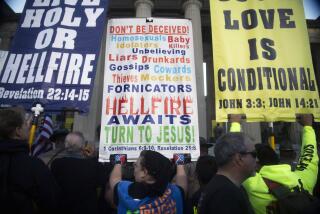How a night out jeopardized South Korea’s COVID-19 response and sparked homophobic backlash
- Share via
SEOUL — The city had begun breathing easy, life once more pulsating in its streets. Museums and art galleries reopened, gyms welcomed back regulars, baseball and soccer leagues kicked off. Traffic choked thoroughfares, and schools readied classrooms to greet students for the first time in months.
For 18 days in a row, this metropolis of nearly 10 million reported zero cases of community transmissions of the novel coronavirus. It seemed, even in these uncertain times, that danger had receded in a nation praised for its handling of the pandemic.
Then, a 29-year-old man who’d gone clubbing over a holiday weekend came down with COVID-19, shattering the tenuous sense of normality and setting off a frenzied search for thousands who’d been in the clubs and bars he visited.
As of Tuesday, more than 100 people had tested positive for the virus linked to a cluster stemming from the popular nightlife district of Itaewon. Co-workers and family members of clubgoers have tested positive, including an 84-year-old woman who’d dined with a grandson. The city recoiled: More than 2,000 establishments were ordered to shut down, office buildings where the infected worked were closed, and start dates for schools were, once again, pushed back.
The latest outbreak unleashed a torrent of anger against the young revelers and ignited debates over personal responsibility and blame. Recriminations have led to life-and-death questions that will beset societies across the world as governments weigh the risks of when and how to ease social distancing requirements. What do we owe our neighbors at a time when individual pleasures risk unraveling the hard-earned collective reprieve from the virus’ terror? And when the virus slips through the cracks of relaxed vigilance, whom do we hold to account, and how?
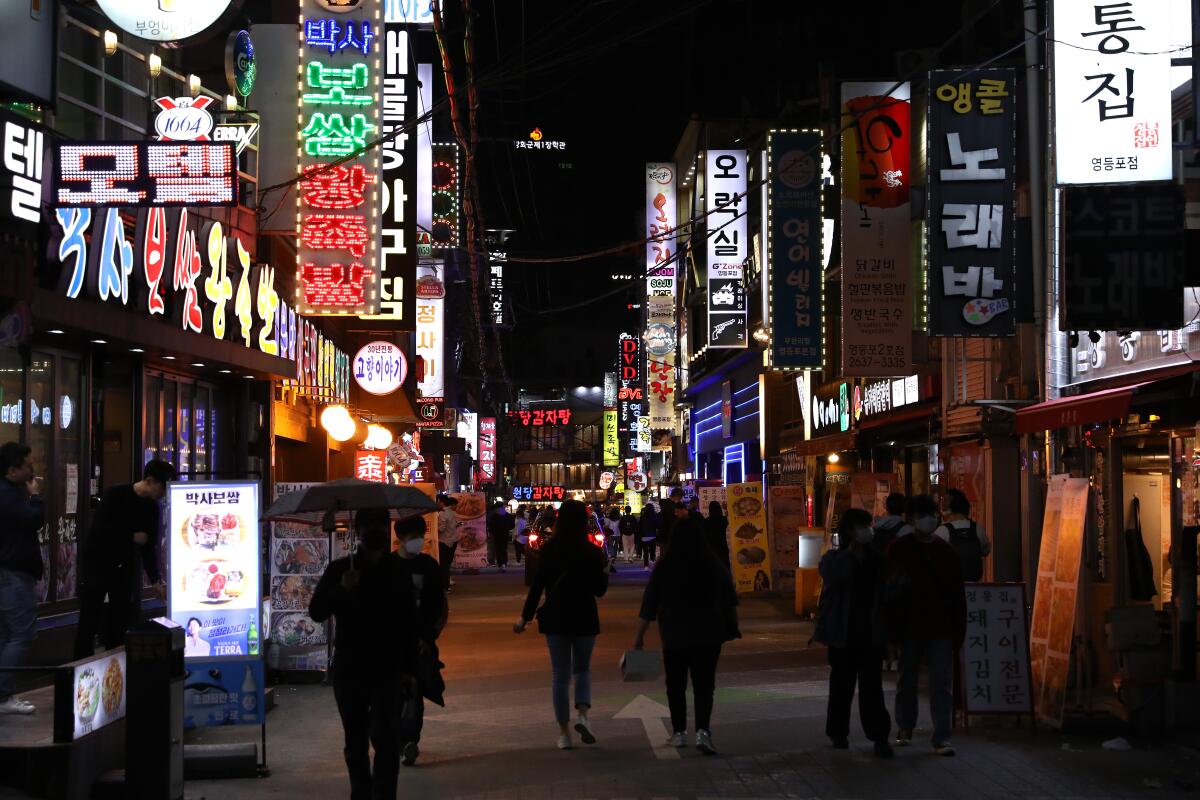
One neighbor living in the same apartment complex as one of the recently diagnosed clubgoers did not mince words.
“Are you even human?” railed a handwritten sign pasted at the entryway to the apartment building in Incheon, a city about an hour west of Seoul. “Young children and middle- and high school students aren’t able to go outside, and are taking online classes. I sure hope you’re happy you went dancing like a delinquent at an Itaewon club and got infected. You should be sorry,” the sign said.
The public vitriol has also raised concerns it could lead to vilification of sexual minorities; the clubs the 29-year-old visited mostly catered to gay patrons. Some media reports zeroed in on the fact that gay clubs were at the center of the outbreak. Civil rights advocates were alarmed that the young man’s workplace and city of residence — Yongin, a suburb of Seoul — became known, in effect outing him in a society where homosexuality remains largely taboo.
A Facebook post from Yongin with information about the man’s movements had nearly 200 angry comments — many laced with expletives — castigating him for being reckless. Several remarked that he went to a gay club, an indication of a troubling cultural moment when panic over a virus exposed deeper societal truths.
“Because of people like this, everyone suffers,” one commenter wrote.
Efforts to contain another outbreak by tracking down and testing those who may have been infected — a hallmark of South Korea’s virus response — have run up against fears in the LGBTQ community that they can be discriminated against at work or face strife within their families.
South Korea has a vocal Christian right that denounces and campaigns against homosexuality, to the point of violent clashes at pride parades around the country.
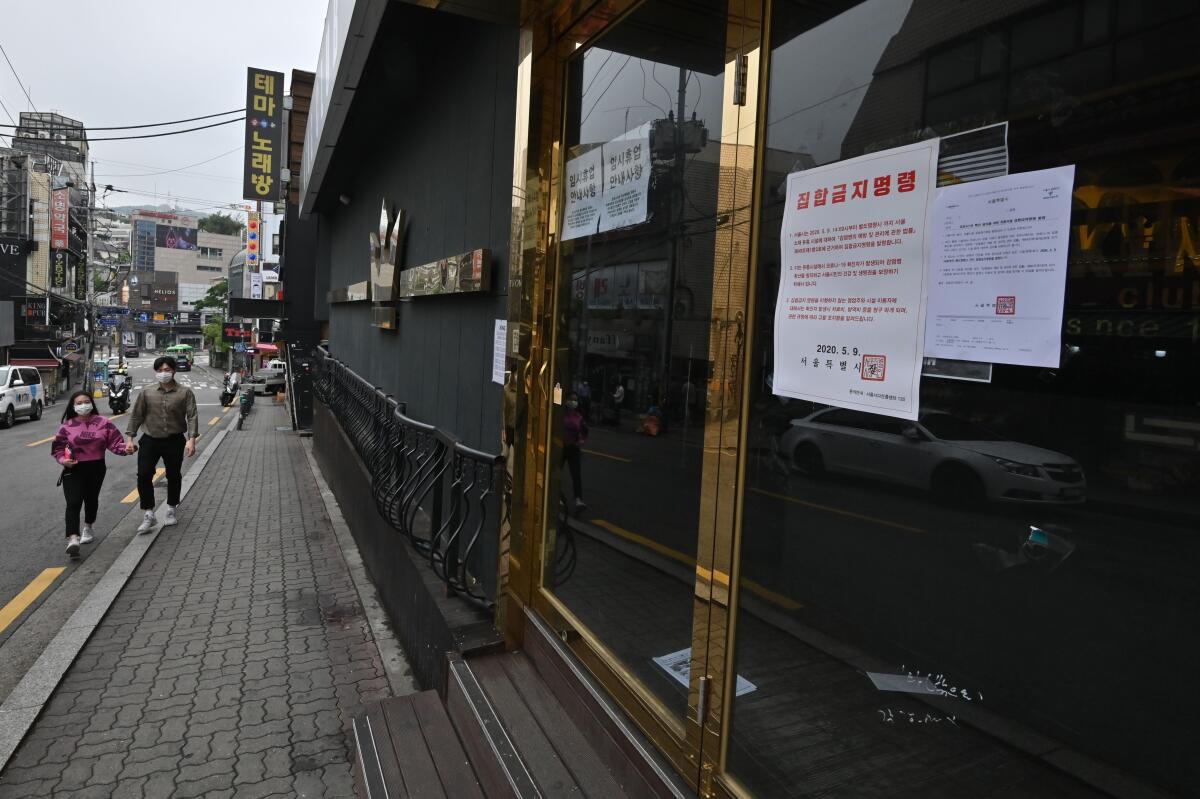
Chingusai, a rights group for gay men, issued a statement saying media headlines had made containing the outbreak all the more difficult.
“This type of reporting will only serve to create anxiety and fear about being outed and discourage those who have been in contact with the infected, making them hide,” the group said. “Getting tested proves they were there and in effect reveals their sexual orientation, making it harder to get their cooperation.”
The recent spike in cases laid bare the double-edged nature of South Korea’s approach of radical transparency, which errs on the side of disclosing detailed information about those infected. While the policy enabled the country to get a swift handle on containing the virus’ spread, a response that has received worldwide acclaim, the information released about infected patients’ whereabouts and personal facts have occasionally led to the public shaming of “super-spreaders.” Such pressure may discourage people from seeking out testing.
On COVID-19, South Korea and other Asian countries have outshone the United States. So why does Trump keep boasting about his response?
It was through early, efficient and widespread contact tracing and testing that South Korea curtailed its domestic outbreak despite having the first rapid surge of cases outside China. As of Tuesday, the country had just under 11,000 coronavirus cases and 258 deaths total, despite having had the first case on the same day as the U.S. — on Tuesday alone, the U.S. had more than 18,000 new cases and more than 1,000 deaths.
The Seoul chapter of the rights group Amnesty International on Tuesday cautioned against violating the rights of sexual minorities and lambasted a newspaper for highlighting that a gay club was part of the outbreak when the fact wasn’t relevant to the story. The paper, Kukmin Ilbo, later changed its headline to remove the words “gay club” after receiving criticism.
“Branding and fomenting hatred against a certain group is the biggest obstacle to effective disease prevention,” Amnesty International said in the statement. “Disease prevention and guaranteeing human rights isn’t a binary choice.”
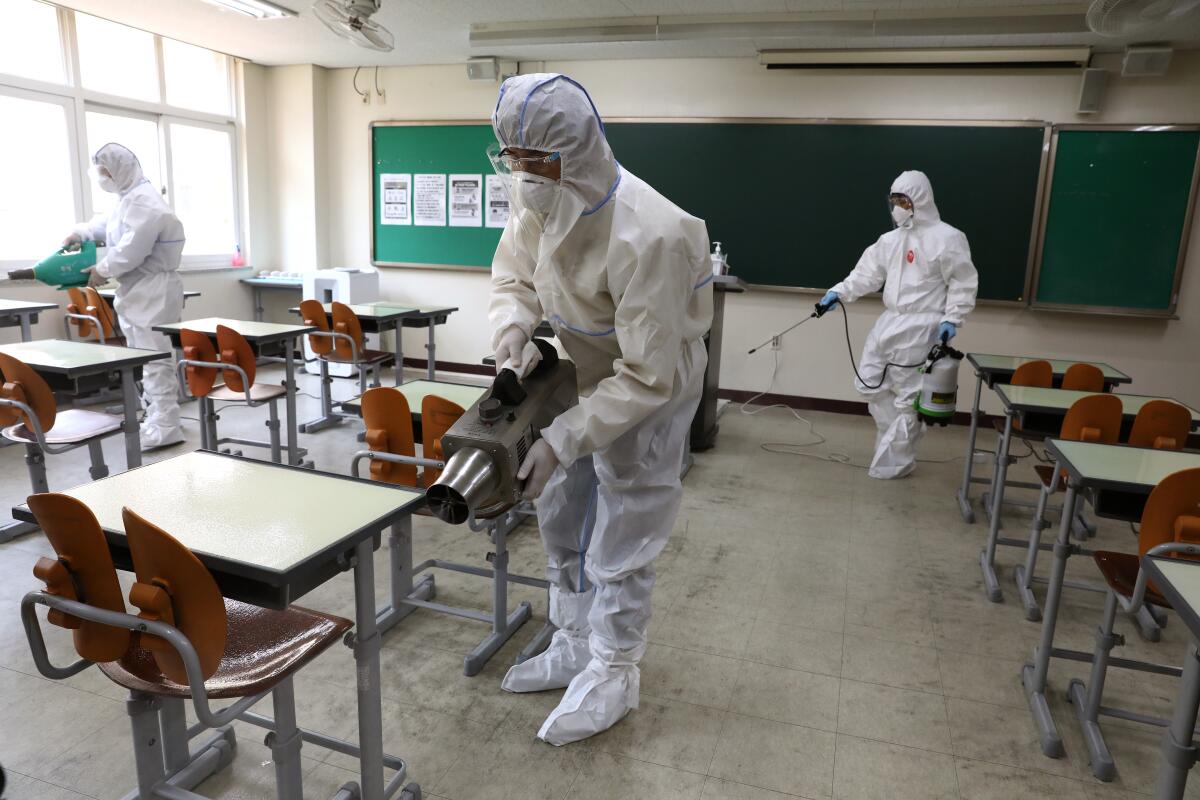
Seoul Mayor Park Won-soon said Tuesday that those who may be reluctant to come forward will be allowed to get tested by providing only their phone numbers, without giving their names. Even though the clubs kept self-reported logs of customers, authorities said much of the information listed wasn’t accurate.
Park said epidemiological investigators had obtained a list of more than 10,000 individuals who were in the Itaewon area during the dates in question based on cell tower information, as well as an additional 494 based on credit card data, and sent out text messages urging them to get tested.
“Exclusion and hatred don’t help at all in the fight against an epidemic,” he said. “The increased censure and hateful expressions aren’t advisable and will actually have the reverse effect.”
The administration refuses to release migrant kids to ready sponsors, telling courts that custody is safer — even as it ramps up deportation efforts.
More to Read
Sign up for Essential California
The most important California stories and recommendations in your inbox every morning.
You may occasionally receive promotional content from the Los Angeles Times.
